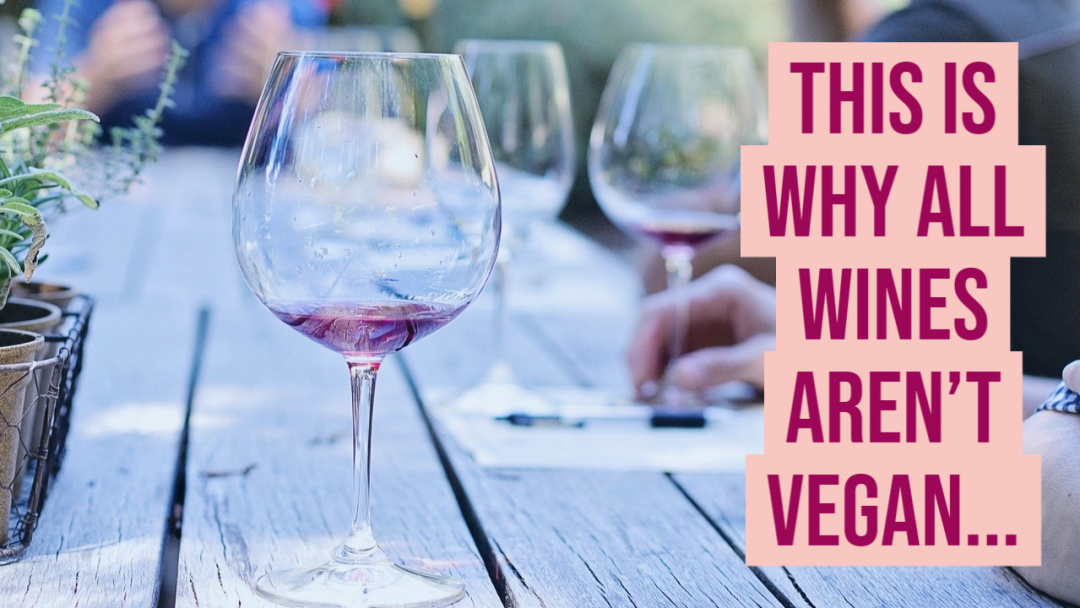Vegan wines… You would be forgiven for finding this idea puzzling. After all, wine is just fermented grape juice. How could it not be vegan friendly? Well, it’s a little bit more complicated than that.
Side note: I have also made this vegan wines blog post into a short YouTube video. To watch, just scroll down to the bottom & click play. If you enjoy the video, consider subscribing (click here) so you never miss an episode of my wine education series.
After fermentation, a newly finished wine is pretty cloudy to look at. It contains lots of tiny particles including pieces of grape skin, pulp, or stems, dead yeast cells, bacteria, tartrates, proteins, pectins, tannins, and so forth.
If left for sufficient time in a tank or barrel, those particles get dragged down by the force of gravity and form a sediment. The clear wine can then be drawn off the top in a process called racking.
However, this takes quite a long time and is not always guaranteed to yield a perfectly limpid wine. Many winemakers prefer to bottle their wines fairly quickly after harvest. There are many reasons for this, the main one being to preserve the fresh, fruity style of the wine.
The most rapid and effective method for getting wines of perfect clarity, is to employ a winemaking technique called fining.
What is Fining?
Essentially, fining consists of adding a substance to the tank or vat containing the soon-to-be-bottled wine. This substance forms an absorbent, enzymatic or ionic bond with the suspended particles, producing larger particles that will precipitate out of wine more readily and rapidly.
Certain fining agents have the added benefit of removing polymerized tannins, making the wines less astringent on the palate.
What does this have to do with Vegans?
The problem for vegetarians and vegans is that many of these fining substances contain animal products or by-products like gelatin, egg whites, or a milk protein called casein.
Also, certain types of synthetic corks are made using mik-based glues.
There are two ways to produce vegan wines. A more common practice for early-released, high volume vegan wines is to use a vegan friendly fining agent like bentonite (a natural clay). For more premium vegan wines, many producers choose not to fine or filter their wines, allowing natural settling to occur. These wines may still contain a slight sediment, but it is harmless and tasteless.
How do I find Vegan Wines?
Wineries in North America and the EU are not obliged to list their ingredients on labels, so it is not always easy to know what fining agent, if any, was used. That being said, vegan wines are an increasingly common prerequisite for many major retailers, especially super-markets. As such, many wine producers have made the switch in recent years.
If you want to be 100% sure, look for wines that carry a vegan friendly logo, or clearly state “suitable for vegetarians and vegans” on their back label. Alternatively, you can seek out wines that were bottled without fining.
Finally, don’t hesitate to ask your local wine merchant to help you out. Some stores will house vegan wines in a special section. If not, they generally have the technical details of the wines they carry on file, so if you are wondering about a specific wine, they can check for you.

